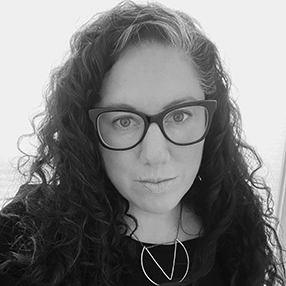Non-lieux
Hand-painted on the side
of a shack we pass
on the road to Ohio:
what this world comin to?
This is not haiku. This
is more like fog and we’re
socked in and your body
is invisible and right
across from me
simultaneously.
How much ammo you got?
says one guy to another
in the cola-chip aisle
of the Food Lion.
The fortitude of rain
hitting the roof:
percussive sadness.
Almost-saved is not
good enough, says
the church sign. We are
out of ketchup again.
Did you see what he
put on Pete’s grave and
what he put on Junior’s?
says the woman in
the Bob Evans bath-
room stall with a cane.
It was sprained, not
broken. From high up,
from far away.
He was still working
at that bar in town,
after all these years,
assigned to a circum-
scribed position, like
the supermoon, like
employee parking.
In the dark 7-Eleven lot
two officers approach
a white van, flashlights on
and held overhand.
The church sign says
living without God
is like dribbling a football.
The light—it was
too bright to be captured
in an iPhone photo
where people are not
the urgency of the
present moment.
Did you get it squared
away? asks one man to
another at the Starbucks
condiment counter.
One of the officers
has a hand on his
holster. What is he
saying to the driver?
The church sign touts
tonight’s sermon: Entering
the Miraculous Zone.
There were no grounds
for prosecution. I left
before I heard
the answer.
Copyright @ 2014 by Erika Meitner. Used with permission of the author.
“‘Non-lieux’ is a phrase from the French anthropologist Marc Augé and it literally means non-places—generic places of transience that aren’t meant to hold enough significance to be regarded as actual places: airports, supermarkets, hotel rooms, train stations. Most of my life takes place in these generic spaces, and I live in a place that many people from larger cities would consider a pass-through region. I’m interested in the interactions we bear witness to in these least poetic spaces: 7-Eleven, Starbucks, Bob Evans, Food Lion.”
—Erika Meitner

